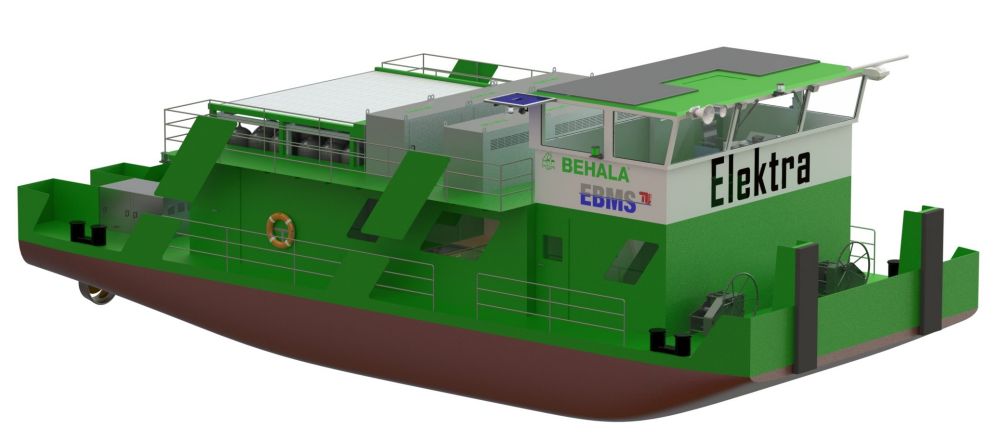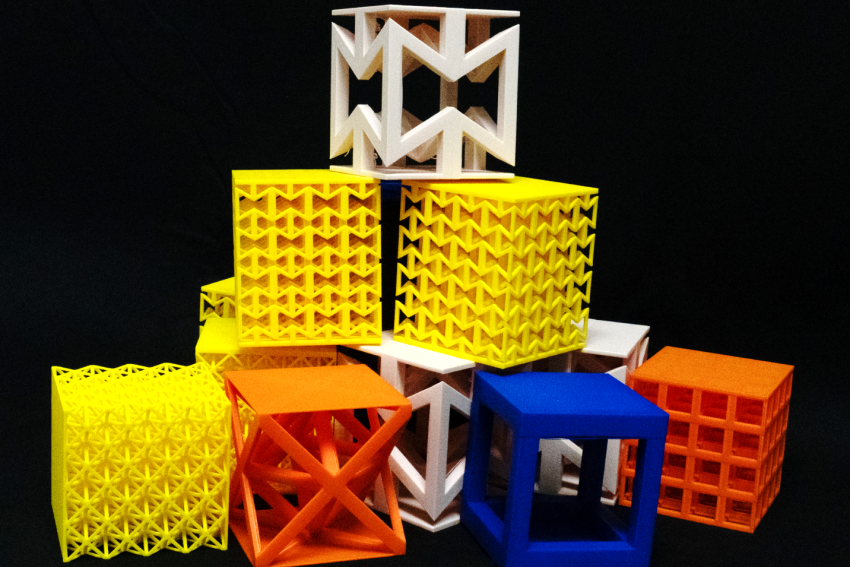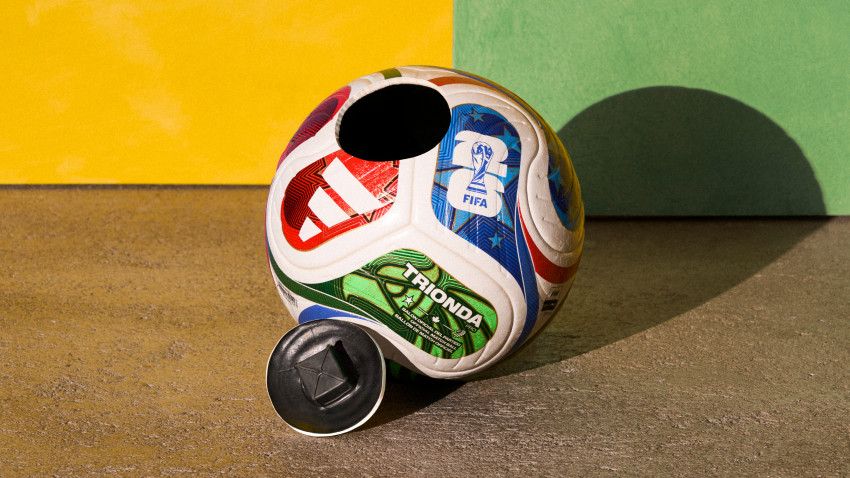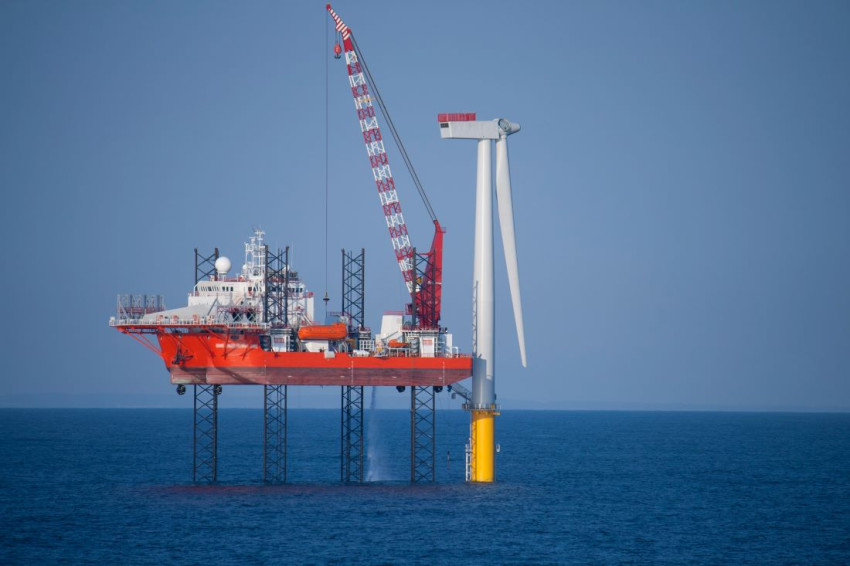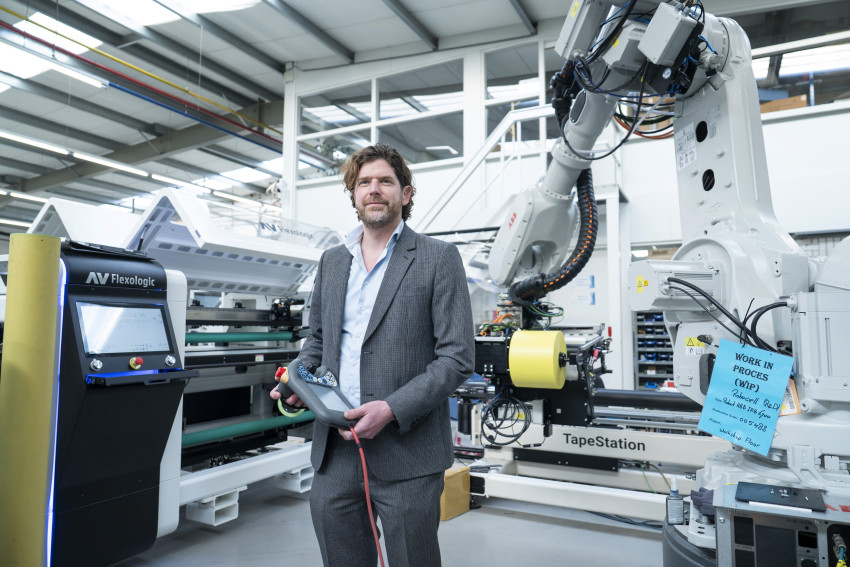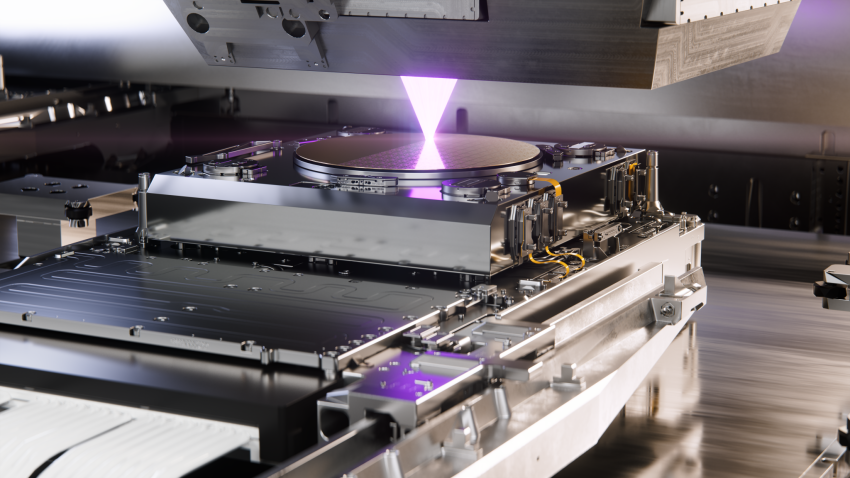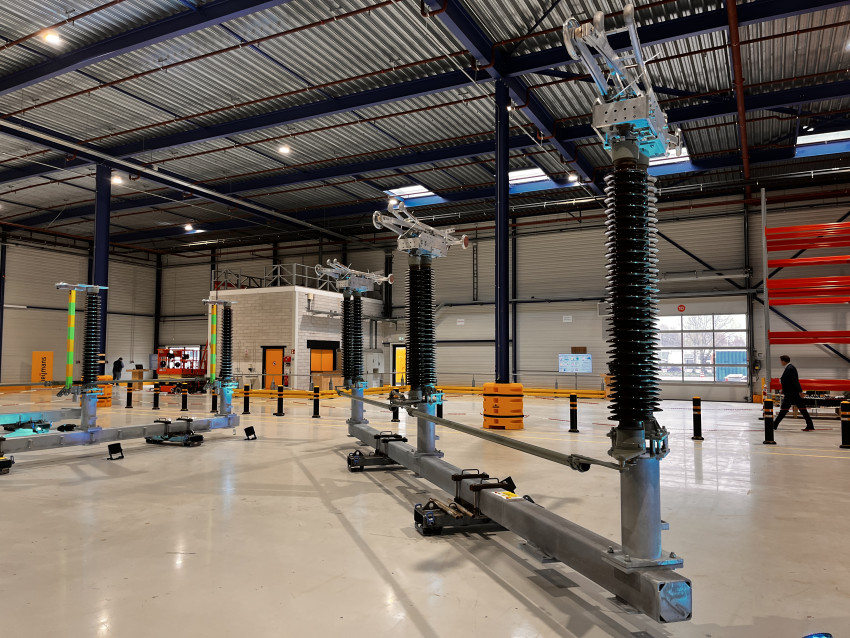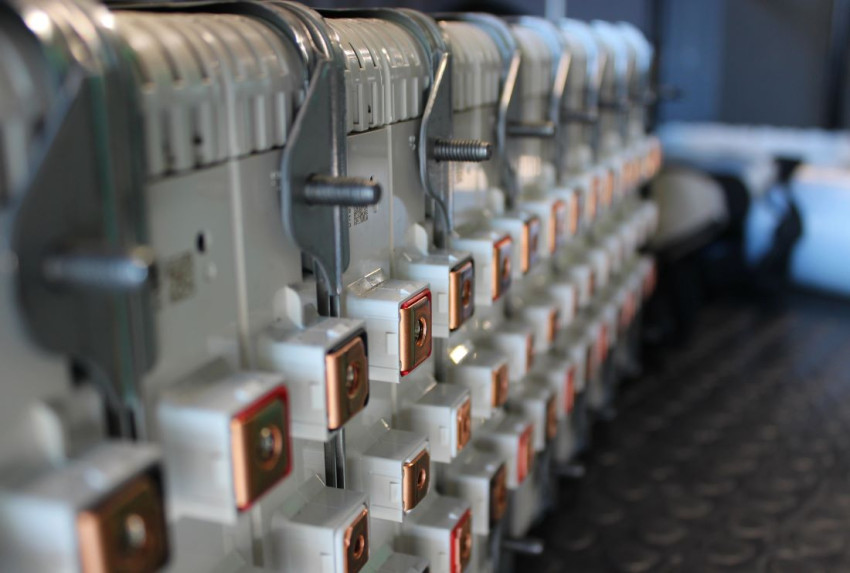
Electric cargo vessel in Germany
Even heavy cargo vessels are switching to electric. The Technische Universität Berlin is developing an electric pusher boat, with batteries and fuels cells as the source of energy. Construction of the prototype will take some time yet, as it doesn’t even start until 2019.
This project, known as RiverCell/ELEKTRA, is led by engineer Gerd Holbach, Professor at Berlin's technical university. It uses a hybrid drive system, a combination of rechargeable batteries and fuel cells. The pusher boat is being developed in close collaboration with the users and sponsors, the logistical service providers BeHaLa and Imperial.
The drivetrain is geared to the sizes and user profiles of cargo ships in the Berlin-Brandenburg region. At 19 metres long, it can take a barge through all the locks of Hamburg or the Baltic Sea ports without having to detach, and its 8.20 metre width is needed for the 1,400 ton gas turbines from the Siemens factory in Berlin.
BATTERY AND HYDROGEN
The ship is equipped with two electric motors of 200 kW each. With fully charged batteries (twice 1,250 kWh), it has a range of 65 km at 8 km/h. The vessel can manage longer journeys to the seaports of Hamburg and Stettin, a day trip of 130 km at a speed of 8.5 km/h, using its hydrogen fuel cells that are connected in parallel for a total capacity of 192 kW. The ship has a reservoir of 740 kg hydrogen on board, stored under 500 bar pressure in six tanks. Further, on the wheelhouse roof, there are solar panels with a peak capacity of 2.5 kW for the on-board power supply, which also has a 230 kWh battery.
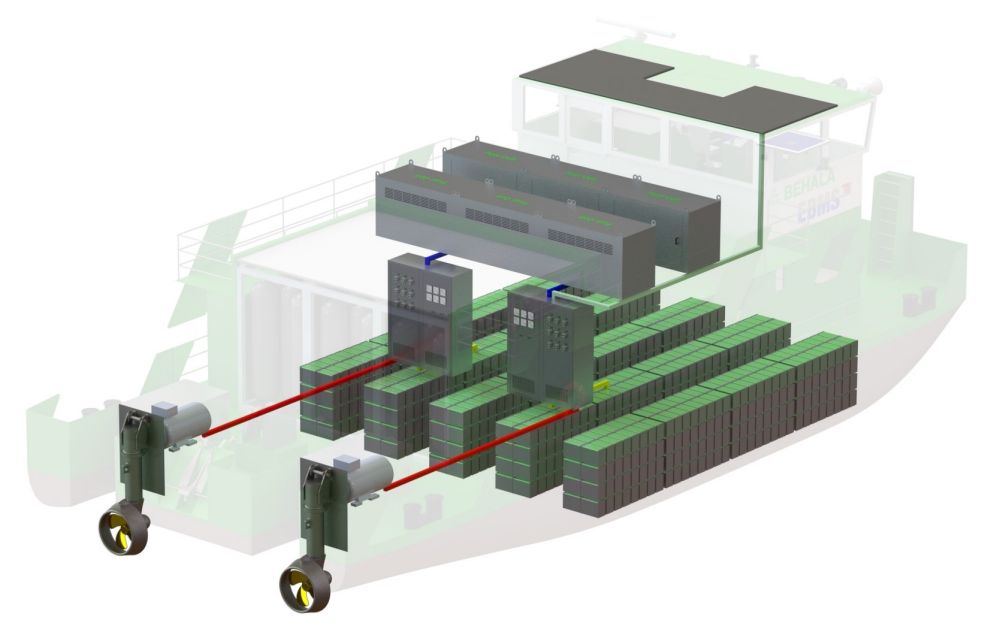
Due to the limited space on the ship for the drive system – it also needs to provide room for three crew members on journeys lasting several days between the seaports and Berlin – it has a maximum speed of 10 km/h, necessary for special manoeuvres. The ship is therefore not permitted to navigate the Rhine, as a peak speed of 13 km/h is prescribed there.
ZERO EMISSIONS
Thanks to a financial injection of 4.7 million euros from the German transport ministry and from involved partners, the concept is to go into production. Holbach is currently looking for suppliers. He estimates that construction of the prototype will commence in the autumn of 2019, with the launch scheduled a year later. Realisation also depends on developments in Germany's hydrogen infrastructure, which is currently being developed.
With its shore power and hydrogen, the ELEKTRA sails under zero emission. If both are generated sustainably, then the passage of this ship is completely zero emission. And that's precisely what the partners of this project are aiming for.
The ELEKTRA anticipates the desire to make all Berlin's transport zero emission by 2050. Because the harbour basins lie directly adjacent to residential areas, noise is also a major issue: electric motors generate 70% less noise than the current – 40-year-old – diesel engines. (Judith Stalpers)
If you found this article interesting, then subscribe for free to our weekly newsletter.
